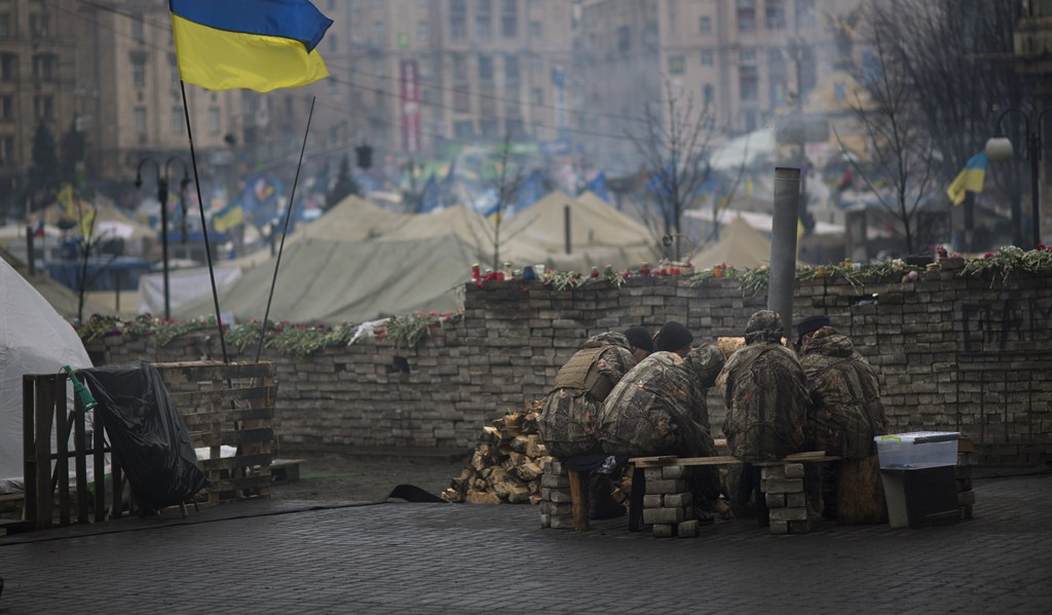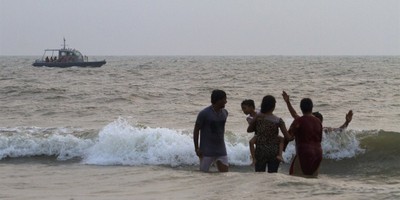The Russian invasion of Crimea occurred in a place little known to Americans, for reasons rooted in a tangled and bloody history. The showdown between President Vladimir Putin and the new Ukrainian government is a fight about tangible matters of intense mutual interest.
But many Americans can't address international crises without sounding like a Toby Keith song: "I Wanna Talk About Me." If bad things are happening anywhere in the world, it must be something we caused and something we can fix.
Listen to John McCain, the Arizona Republican senator whose current mission in life is to confirm the wisdom Americans showed by not electing him president. "Why do we care?" he thundered in a speech this week in reference to the Russian invasion. "Because this is the ultimate result of a feckless foreign policy in which nobody believes in America's strength anymore."
This will be enlightening to Ukrainians who cherish democracy and human rights and thought our attention stemmed from shared values and concern for their welfare. No, we care about what's happening there because it proves the ineptitude and impotence of Barack Obama.
Sen. Lindsey Graham, R-S.C., insisted the Russian aggression came because "we have a weak and indecisive president." Sarah Palin crowed that she had predicted that if Obama were elected president, Russia would invade Ukraine because of his "indecision and moral equivalence" when Russia invaded Georgia.
Both of them seem to forget that Putin brazenly attacked Georgia during the presidency of George W. Bush, who had gone to considerable trouble to prove his "strength" by invading Iraq and Afghanistan.
Obama, of course, has not been averse to using force abroad -- mounting a surge that more than tripled U.S. troop strength in Afghanistan, bombing Libya to bring down Moammar Gadhafi, ordering the raid that killed Osama bin Laden and approving drone strikes that have left some 2,400 corpses.
Recommended
True, Obama did stupidly threaten retaliation if the Syrian government used chemical weapons -- a threat he proved unwilling to carry out. But the belief that the KGB veteran who rules Russia would have behaved differently had Obama launched some missiles at Syria is a risible delusion.
In this instance, Putin perceived that measures of toughness were irrelevant, because no American president was about to use military force to reverse an occupation of Crimea. Even McCain lamely agreed, "There is not a military option that could be exercised now."
The only humor in this situation is the dark sort, which consists of contrasting the hard rhetoric of Obama's critics with their pillow-soft recommendations. An editorial in The Wall Street Journal mocked Obama's stern condemnation of the attack: "That will have the Kremlin quaking."
It argued that, instead, "all trade and banking relationships with Russia ought to be reconsidered." Trade and banking relationships? All of them? Reconsidered? Oooh. That's going to leave a mark.
Sen. Marco Rubio, R-Fla., offered eight steps Obama should take to punish Putin, none of which involved the use of military force. He did propose an offer of NATO membership -- not to Ukraine, strangely, but to Georgia.
Putin used force because he thought the fate of Ukraine was too important to leave to Ukrainians. That's not exactly a new policy for the Kremlin. The notion that a great power is entitled to respond militarily to unwelcome events in its backyard has a long pedigree in Washington, too. Ask the Cubans. Or the Nicaraguans. Or the Dominicans.
What was obvious to Putin is also obvious to just about everyone in American politics: A violation of Ukraine is not important enough to the U.S. or its allies to elicit a military response. It didn't matter what Obama did in Syria -- any more than it mattered for Georgia what Bush did in Iraq and Afghanistan.
It wouldn't have mattered if Obama had not tried to "reset" relations with Russia. It wouldn't have mattered if Palin herself had had her finger on the nuclear button.
What mattered, as University of Chicago defense scholar John Mearsheimer puts it, is that "Ukraine is of enormous strategic importance to Russia" and that "we have hardly any good cards to play." In this scenario, Obama's policies were as irrelevant as Bush's were in 2008.
In Washington, many politicians assume the world revolves around us. The people in power in Moscow have a very different and puzzling trait: They think it revolves around them.

























Join the conversation as a VIP Member